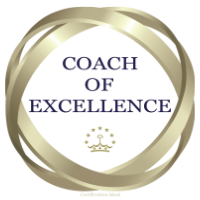 This article was kindly provided to us by Choice – The coaching magazine. Choice is a community for people who use coaching in their work or personal lives.
This article was kindly provided to us by Choice – The coaching magazine. Choice is a community for people who use coaching in their work or personal lives.
They’ve been building a strong, passionate following in the coaching industry for more than a decade. Click the image to find out more or visit their website by clicking here.
“I’m an established coach with 20-plus years of experience, now coaching clients who are much younger. What should I be doing or learning in order to coach effectively across a broader range of generations? How can I avoid the age difference becoming a barrier?”
I love that you’ve been doing this work for 20-plus years. And here’s the good news: you don’t have one year’s experience 20 times. You have 20 years’ experience! THAT makes you valuable, wise, and effective. Your ability to relate starts with your attitude about your clients, regardless of their age.
As an example, I’m a bit disturbed about all the talk about “millennials.” They’re a few generations removed from many coaches, but they have needs, wants and desires, just as people of all ages have. Lack of communication is the great barrier of connection. Whether we’re talking age difference, cultural difference or gender difference, it’s our differences that bring the challenges, and it’s communication that brings connection.
An important part of communication is not just getting your message across but also actively listening so that you truly hear what is being said, and the person feels heard. The adage ‘be more interested than interesting’ applies here! Feeling heard happens when a coach asks better questions, doesn’t judge a group or generation for its values, and is seeking to understand rather than be understood.
Barriers can arise when we’re not willing to move towards the other person’s frame of reference. That can be in language, technology, style of communication and/or awareness of what’s generally important to the age group you’re working with. The millennial generation (born between 1980 – 2000) has a great affinity to technology. So be tech savvy to relate.
If you won’t text, you won’t connect. It is absolutely true that people don’t care how much you know until they know how much you care. Are you keeping up to date through blogs, the Internet, digital news sources, etc.? You don’t have to know all your younger clients know, but you can’t be a deer in the headlights if they mention their points of reference. (And ASK if you don’t know what they’re talking about.) To relate to anyone who is different from you, think about what’s important to him or her, not what’s important to you.
Many of my clients are 30-plus years younger than me. They appreciate my experience and I make sure I listen intently to what matters to them and withhold judgment. I always tell my clients, “Do you understand I stand for YOU and NOT your goals?” When they understand this, they clearly begin to see me as their partner.
What an insightful question, dear colleague! You are highlighting an important awareness masterful coaches consciously remain mindful of: we don’t know what we don’t know when it comes to our clients and how to best serve them. In this case, your question is pertaining to age and generational gaps that may or may not cause a barrier; however, it could also just as easily apply to any cultural, religious, political, racial or life choice differences between the coach and clients.
When we are aware that we don’t know what we don’t know, we can set about mindfully respecting that which we can’t possibly learn in advance and don’t even know to ask our clients. Inherent in your question seems to be an assumption that there is something tactical for you to do or learn about generational distinctions, or that you’re lacking some specific knowledge.
Rather than provide you with a list of tactical resources where you can learn about generational differences in communication, values, or approaches, let’s explore the mindsets that will allow you as a coach to best serve your clients who may be different from you in any way. From this strategic place, you will find you may not need the list of books to read or courses to take or recommendations of what to do and learn in order to coach effectively across generations.
Three key service mindsets to bring to each client are curiosity, a beginner’s mind and authentic vulnerability. When you come from your natural curiosity, you can embrace the joy of learning about new cultures, generations or individuals and generate great questions that will illuminate for you (and perhaps for your clients) how they think, how they are wired and what matters most to them.
When you bring a beginner’s mind, you let go of the need to already know and you give yourself permission not to be an expert. This frees you from the pressure to school yourself on the generational distinctions and allows you to seek to understand the generational (or cultural, political, religious, etc.) nuances in the context of your client’s particular worldview.
When you employ authentic vulnerability, you can share with your client that there may be questions you don’t know to ask to best understand his or her generation (or culture, religion, etc.) and that you have legitimate concerns about not wanting to cause any harm or unintentionally create any barriers. Thus, you give the client permission to correct your missteps and fine-tune your thinking in a respectful and mutual exchange of information.
What do your younger clients need that you don’t yet know they need? What do they need that they don’t yet know they need? How can you and your client’s partner to bring forth what would serve them best? Being willing not to know opens a wide landscape of possibility from which to coach and serve your clients of all ages.
This question got me wondering about the sticky situations a 50-, 60- or 70-year-old coach might get into with a 40- or 30-year-old client. I also know the reverse is true: there are plenty of young coaches who find themselves working with senior executives or older clients and confront within themselves the menace of the looming “R-word” (Relevancy!).
At this point in my career most of the clients I work with are younger than me, and often much younger. When I woke up one day and realized that fact, I went through a process of adjustment – one that ultimately and thankfully became a source of empowerment. The question you are asking is important, and the first thing I encourage is that you proudly wear the badge of honour you have earned for 20-plus years’ experience!
Two further points I want to make about this topic. First, who you work with and how you position yourself makes a huge difference. For example, with entertainment, finance, sports or tech enterprises your up-to-date knowledge of trends and concerns is paramount if you’re positioning yourself as an expert who knows what’s current.
You’ll need to know as much or more than your young clients. However, if you position yourself as a personal and professional development expert, you have to know more about curiosity, leadership, powerful questions, how to get results in your niche, and how to be an effective coach and communicator. That’s it. From that place you own your experience and carry it as a benefit to your client; the age- elated chatter becomes an entirely positive conversation. The second point is more about dynamics and energy.
It is applicable whether you are much older or much younger than your client and addresses how barriers can be avoided. If you are younger than your client, it is imperative that you “not get too big.” If you are much older than your client, it is imperative that you “not get too small.” This relates to subtle, mostly unconscious principles that have to do with respect. It’s quite natural.
If you are much younger than your client, the coaching (even if it looks like it’s going well) will collapse if you speak in a way that denotes a wisdom or authority beyond your age or experience.
If you are an older coach – and this can be especially sticky territory – a younger client will lose confidence in, you if you try to behave too much like them. Your place is to be more authoritative, more worldly, more experienced, and more – dare I say it – grown up. The bottom line is to keep being you.
Study the lifestyle, beliefs and trends of the younger demographic you work with, but do not kowtow to it or let it confuse who you are. Young people spot bluster from a hundred yards, and they won’t be kind about telling you what they see or ignoring you. Remain humble, but let your experience shine through.

